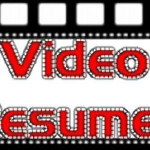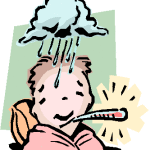
Finding A Job Right Out of College
 So you’ve got that handy paper in hand with your name on it that says you are fully competent in your field. You’ve spent long hours researching and studying for test after test, and now, you are ready to enter the workforce. The question is, “Now what?” You have been told, for the longest, that once you have a degree, it will make it easier to find work. That is a Yes and No statement. Yes, having a degree is going to open doors for you that would otherwise be closed. However, those doors are also opened to everyone else who graduated the same time you did, after you, and before you.
So you’ve got that handy paper in hand with your name on it that says you are fully competent in your field. You’ve spent long hours researching and studying for test after test, and now, you are ready to enter the workforce. The question is, “Now what?” You have been told, for the longest, that once you have a degree, it will make it easier to find work. That is a Yes and No statement. Yes, having a degree is going to open doors for you that would otherwise be closed. However, those doors are also opened to everyone else who graduated the same time you did, after you, and before you.
It’s a great time in our country education-wise. There are so many students who have access to educational opportunities. The trick is to find employment opportunities, once you are finished with school. It’s a new time. You used to be able to get a job by just going in and interviewing. You didn’t need a resume. Now, you need an electronic resume that you can send out online, or maybe even a video resume that you can forward to employers. There are so many options out there for you that we’ve outlined some of the basic things to help you get yourself out there and noticed!
Resume:
 A paper resume should be no longer then 2 pages, unless it is a curriculum vitae at which it’s expected to be 45 pages worth of information. If you have a third page at all, it should be your references. No staples, your name should be at the top of each page, and it should be printed on resume paper with a watermark.
A paper resume should be no longer then 2 pages, unless it is a curriculum vitae at which it’s expected to be 45 pages worth of information. If you have a third page at all, it should be your references. No staples, your name should be at the top of each page, and it should be printed on resume paper with a watermark.
An electronic resume is either a scanned or pdf version of your resume that you can send out online through e-mails or other job sites that ask you to upload a resume. It should have all of your pertinent contact information, so that employers can reach you.
Video Resume:
 A Video Resume is something that is a little controversial for no real reason. It’s a 1 to 3 minute short video of you talking about yourself, your qualifications and what you can do. Make sure that you are smiling and dressed for an interview when you film. This can be done on your computer from home or through an agency that will coach you through what to do. Act natural and be pleasant. You want your personality to shine through. Treat the video resume as if you are speaking directly to an employer and you will be just fine.
A Video Resume is something that is a little controversial for no real reason. It’s a 1 to 3 minute short video of you talking about yourself, your qualifications and what you can do. Make sure that you are smiling and dressed for an interview when you film. This can be done on your computer from home or through an agency that will coach you through what to do. Act natural and be pleasant. You want your personality to shine through. Treat the video resume as if you are speaking directly to an employer and you will be just fine.
Searching For The Right Job:
Job vs. Career. Assuming that you went to school for that very thing that you wanted to do most in the world, then, you have a pretty good idea of what it is that you want to do with the rest of your life. For others, it’s not that straightforward. Some students chose general degrees that would allow them to diversify, if needed. Both approaches are good ones. Those with special skill sets have a chance of great job security by being the only one who can do a certain job whereas, those who chose a general route would be able to fit into many different companies at once. The trick to both is making sure that when you apply, you apply to places that will make you happy working there for a long time. Sometimes, we take a job just to take one and later, find out that upon losing that job, we weren’t really upset about it because we really didn’t love working there. Taking a job to pay the bills is fine. Finding a job that you enjoy waking up to every morning is the goal.
There is more to consider than just money. When you’re in high school, you’re told about all of these jobs that will pay a lot of money. You’re told to be a doctor, a lawyer, maybe a senator, or a basketball player. The problem is you can’t stand the sight of blood, you don’t care for the judicial process, you barely like to vote, and you have two left feet. Jobs that earn a lot of money are fine, but the only way to make a lot of money doing them is if whether you enjoy doing it or not. If you don’t like basketball, then, you’re not going to make the NBA. If you don’t like speaking in front of a crowd, then, being a lawyer or senator is probably not in your future. Choose a job that you love to do. If you could do anything for free and not worry about making money, what would it be? Traveling? Be a tour guide? Helping people? Try being a caseworker or counselor. Don’t just go for a job just because there are dollar signs there.
Another thing to consider other than money are benefits. If you apply for a job that you hate because you  can make 80k a year, but the job paying 45k a year has a 401k, a pension plan, and medical benefits, then, you need to think about what you really need. Do you have a sick child? Maybe you want to save up for retirement comfortably. Maybe you want that extra cushion for future endeavors. 80 grand may sound spectacular, but once the IRS takes their cut, you’ve paid bills, gotten sick, spent long hours to earn it, and taken your child to the orthodontist, you will feel like you’ve never seen that money. Not to mention personal satisfaction. If you don’t get up in the morning loving what you do, you won’t keep that high paying job for long. Stress is a killer and 10 or 15 years is a long time to work somewhere, just because of money.
can make 80k a year, but the job paying 45k a year has a 401k, a pension plan, and medical benefits, then, you need to think about what you really need. Do you have a sick child? Maybe you want to save up for retirement comfortably. Maybe you want that extra cushion for future endeavors. 80 grand may sound spectacular, but once the IRS takes their cut, you’ve paid bills, gotten sick, spent long hours to earn it, and taken your child to the orthodontist, you will feel like you’ve never seen that money. Not to mention personal satisfaction. If you don’t get up in the morning loving what you do, you won’t keep that high paying job for long. Stress is a killer and 10 or 15 years is a long time to work somewhere, just because of money.
Interview:
Got your resume? Figured out what it is you want to do for the next 10 years? Great, now it’s time to get cracking on the interview! In a survey done with over 100 employers, it was discovered that the interviewees displayed the following problems:
• Lack of eye contact
• Fidgeting
• Bad posture
• Showing up late
• Checking their phone or texting
• Not being friendly
These things may sound like no-brainers of what not to do for you, but for others, it’s a problem. You should be able to confidently walk into an interview to discuss your skills without sounding arrogant. You should be able to smile and look your future employer right in the eye. You should know where you are going to interview and what time and date you should be there.
Research should be done on the company you have applied to before you even apply or step in the door for the interview. You should know where the interview is, what the companies does, or at least have a good idea of what you will be doing. You should know the name of the person you are going to interview with and the name of the company. You would be surprised at how often someone just saw the base salary, clicked their heels together and said they would do it with no thought on the who, what, where, why’s and whens.
We hope that we have given you some things to think about when preparing for your interview. Whether you are a seasoned job vet, getting back into the workforce, or just graduated, these are all things to consider when looking for your next job. △
